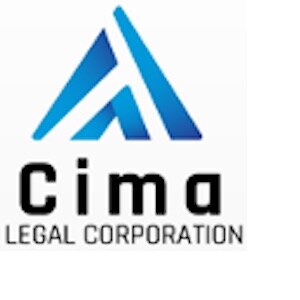Best Employment & Labor Lawyers in Quito
Share your needs with us, get contacted by law firms.
Free. Takes 2 min.
List of the best lawyers in Quito, Ecuador
About Employment & Labor Law in Quito, Ecuador
The realm of Employment & Labor Law in Ecuador is governed by the country's Labor Code, which outlines the responsibilities and rights of employers and employees alike. These laws regulate a wide range of employment matters, including work hours, minimum wage, contract agreements, employee benefits, and workplace safety. The laws also provide protection against workplace discrimination and ensure social security benefits. It's important to note that these laws apply to all businesses in Quito and across Ecuador.
Why You May Need a Lawyer
Legal assistance is often required in situations involving employment disputes or contract issues. These can range from allegations of wrongful termination, workplace harassment, wage disputes, or breach of contract. You may also need a lawyer when setting up your own business to ensure you comply with all employment and labor laws. A lawyer can provide you with necessary legal guidance and representation to protect your rights and interests in such situations.
Local Laws Overview
In Quito, as well as the rest of Ecuador, the Labor Code specifies a 40-hour work week, with a maximum of 8 hours daily. Overtime is paid at a higher rate. Minimum wage is set by the government and is subject to change annually. Businesses are required to pay employees a "thirteenth" and "fourteenth" salary, corresponding to an extra month's pay at Christmas and before school reopenings. Worker's compensation, insurance, and pension benefits are mandatory. Discrimination based on race, gender, religion or disability is strictly prohibited in the workplace.
Frequently Asked Questions
What is the current minimum wage in Quito?
Ecuador updates its minimum wage annually, so it's best to check the current year's rate from an official government source.
What are the laws surrounding maternity leave?
Female employees in Ecuador are entitled to maternity leave, including 2 weeks before delivery and 10 weeks after, with full pay.
Can I form a trade union at my workplace?
Yes, the Ecuadorian law allows employees to form or join trade unions for their collective interests.
What is the process for firing an employee legally?
It involves various steps including a proper cause, respecting notice period, and paying required severance payments. It's best to consult with a local lawyer about this in detail.
What if I'm discriminated against at my workplace?
You can report the incident to your employer or the Ministry of Labor. If the issue is not resolved, you should seek legal assistance.
Additional Resources
The Ministry of Labor in Ecuador is a key resource for up-to-date information regarding laws and regulations. The American Chamber of Commerce in Quito also provides valuable information and resources on employment laws. For potential legal counsel, the Quito Bar Association could provide the necessary guidance.
Next Steps
If you need legal assistance with employment and labor law matters in Quito, it's best to consult with a lawyer who specializes in this field. Prepare all relevant documents and information related to your case before scheduling an appointment. This could help expedite the process and enable the lawyer to provide you with the most accurate advice and assistance.
Lawzana helps you find the best lawyers and law firms in Quito through a curated and pre-screened list of qualified legal professionals. Our platform offers rankings and detailed profiles of attorneys and law firms, allowing you to compare based on practice areas, including Employment & Labor, experience, and client feedback.
Each profile includes a description of the firm's areas of practice, client reviews, team members and partners, year of establishment, spoken languages, office locations, contact information, social media presence, and any published articles or resources. Most firms on our platform speak English and are experienced in both local and international legal matters.
Get a quote from top-rated law firms in Quito, Ecuador — quickly, securely, and without unnecessary hassle.
Disclaimer:
The information provided on this page is for general informational purposes only and does not constitute legal advice. While we strive to ensure the accuracy and relevance of the content, legal information may change over time, and interpretations of the law can vary. You should always consult with a qualified legal professional for advice specific to your situation.
We disclaim all liability for actions taken or not taken based on the content of this page. If you believe any information is incorrect or outdated, please contact us, and we will review and update it where appropriate.
Browse employment & labor law firms by service in Quito, Ecuador
Quito, Ecuador Attorneys in related practice areas.












